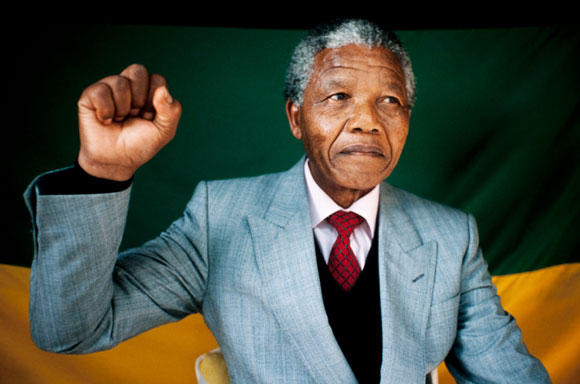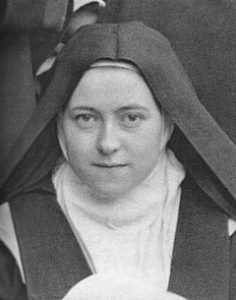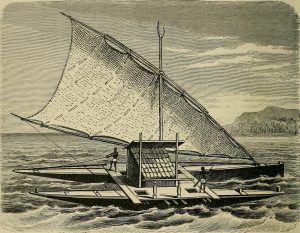Winner of the Spring 2019 StMU History Media Award for
Article with the Best Title
“I have fought against white domination, and I have fought against black domination. I have cherished the ideal of a democratic and free society in which all persons will live together in harmony and with equal opportunities. It is an ideal which I hope to live for and to see realized. But if it needs be, it is an ideal for which I am prepared to die.” 1
The world does not split between only black and white or good and bad. Shades of gray overtake our everyday lives and can make it difficult to navigate ethical dilemmas. Laws and rules do not necessarily make things clearer, nor black and white. Some rules, even those repeated throughout history, may neither be ethical nor positive for people or the societies on which these laws are imposed. If one breaks a law, one can be indicted as a criminal. However, breaking unjust laws provides the philosophical roots of civil disobedience and the motivation of freedom fighters. Nelson Mandela broke the highest law of his land and was tried for treason, not once, but twice. Yet, most recognize Nelson Mandela’s act as justified and he continues to be held in our highest regards, even winning a Nobel Peace Prize. How can one commit treason, be sentenced to life in jail, and still be one of the most beloved leaders and symbols of freedom around the world? Because Nelson Mandela fought for the freedoms of all his people, he fought against an unjust government determined to exploit and dehumanize all people of color, even the indigenous, the legitimate people of the land. Nelson Mandela did not betray the people; he committed treason against an oppressive government for all the right reasons. His world was literally divided into black and white, where white was always lawful, and Africans were always wrong. Mandela fought against laws that had no legitimacy.
On June 12, 1964, the courthouse and the streets around it were filled with those waiting to hear the verdict against Nelson Mandela and eight others during the Rivonia Trials. Judge Quartus de Wet delivered the news that these nine activists were sentenced to life in prison on the charges of conspiracy and sabotage, noting that the actions Mandela and the others committed were “in essence one of high treason” though he did not go as far as to implement the highest form of punishment in accordance with treason.2 The Rivonia Trials were supposed to end Mandela’s fight for justice for South Africa but in fact it only provided him the greatest international stage ever.

Mandela’s first arrest happened in 1952 when the African National Congress (ANC) and National Youth League was being led by Nelson Mandela. He organized a campaign called the “Campaign of Defiance against Unjust Laws,” which was the largest non-violent protest that South Africa had ever seen. The Defiance Campaign was also the first campaign to have all races included in one party in defiance of Apartheid rules by the ANC. 3 Mandela and the other leaders of the Defiance Campaign convinced hordes of volunteers to refuse carrying the books that designated their racial status and to go into the parts of the cities that were forbidden to them. Moreover, the Youth League defied curfews and violated segregation in governmental businesses, such as train stations and post offices. Despite the non-violent nature of the protests, the government became increasingly more worried about the protestors. Members of the Defiance Campaign were frequently arrested for the crimes they committed, but most were minor offenses and were short term prison sentences. This did nothing to stop the influx of volunteers. The numbers rose from 7,000 to 100,000. 4 In December 1952, Mandela was, along with nineteen others, charged for violating the Suppression of Communism Act. The government sentenced them to nine months in jail.
Four years later, in 1956, Mandela was arrested for the second time, during a raid on him home. In his autobiography, “Long Walk to Freedom,” he recalls his arrest that night, asking the arresting officer questions about overpowering him. When the officer said Mandela was playing with fire, he responded with “Playing with fire is my game.” 5” Mandela was put on trial and charged with treason, alongside 155 others, in what would become known as the “Treason Trial.” Four very long years later, the courts eventually found all defendants not guilty. The Treason Trial lasted four years for a number of reasons, mainly the number of people on trial. Defense Lawyer Israel Maisels argued that these individuals were not guilty because “Treason is a crime distinguished by the means used rather than the end” aimed for. 6
In 1960, the ANC was banned and when the trials concluded, Mandela, fearing for his life, fled to the underground, and eventually out of country, first Sudan, then other African countries and London, with a fake passport. During his time under ground and outside the country, the banned ANC gave him permission to gather the forces necessary to create and build an army, essentially taking an organization that treated nonviolence as its core, to a different kind of organization, with a future none could ever predict. 7

Mandela’s return to South Africa would lead to his third, and final, arrest, but not his last trial. Within days of returning, on August 5, 1962, on a drive to a meeting, Mandela was pulled over ending his seventeen months of unrestricted freedom he enjoyed outside of the country. 8 He was arrested and charged with five years imprisonment upon reentering South Africa for leaving and returning to the country without the proper paperwork and inciting violence. It was in this trial that Mandela fully realized who he could be in this fight for justice. He realized that he was “the symbol of justice in the court of the oppressor, the representative of the great ideals of freedom, fairness, and democracy in a society that dishonored those virtues. [He] realized then and there that [he] could carry on the fight even within the fortress of the enemy.”9”
This leads us back to where we started: The Rivonia Trials, which ended in twenty seven years of Nelson Mandela’s life in prison before becoming the first black Head of State for South Africa. In 1948, Apartheid became the system of governance and norms imposed on South Africans. Apartheid refers to total racial segregation, keeping white apart from all people of color. Under Apartheid, the minority led white government of South Africa divided the population in “whites”, “coloreds,” and “blacks.” Under Apartheid, many laws were passed that further segregated the country, like the Bantu Authorities Act in 1951, which designated areas where blacks were forced to resettled. 10 After spending 27 years in jails, and surviving from tuberculosis, Mandela’s fight had only but started. He strongly opposed De Klerk while working and negotiating with him to set up the rules for the first truly democratic elections in 1994. Unsurprisingly, the ANC and its presidential candidate, Mandela, won the election and proceeded to a peaceful tradition of power. Apartheid had been ended by parliament a few years earlier in order to pave the way for more democratization. Mandela purposefully did not seek reelection and went on to serve with the UN as a Special Envoy to help negotiate peace in other areas of the Africa Continent. While Mandela passed on December 5th, 2013, we should heed his words of advice that one cannot rest too long at the top of the hill for our freedom comes with many responsibilities and neither is our walk yet completed.
“I have walked that long road to freedom. I have tried not to falter; I have made missteps along the way. But I have discovered the secret that after climbing a great hill, one only finds that there are many more hills to climb. I have taken a moment here to rest, to steal a view of the glorious vista that surrounds me, to look back on the distance I have come.11”
“But I can rest only for a moment, for with freedom come responsibilities, and I dare not linger, for my long walk is not yet ended. 12”
- Nelson Mandela, Speech at Rivonia Trial, April 20 1964, The Telegraph, https://www.telegraph.co.uk/news/worldnews/nelson-mandela/10140564/Nelson-Mandelas-address-from-the-dock-at-the-Rivonia-Trial.html . ↵
- The State vs. Nelson Mandela and Others, Supreme Court of South Africa (June 12, 1964). ↵
- Sahoboss, “Defiance Campaign 1952,” South African History Online, March 19, 2018 http://www.sahistory.org.za/topic/defiance-campaign-1952. ↵
- Marcia Amidon Lusted, “Peaceful Protest,” Cobblestone 29, no. 4: 40, 2008. ↵
- Nelson Rolihlahla Mandela, Long Walk to Freedom, (Randburg: Macdonald Purnell, 1994):23. ↵
- Hisotircal Papers, The Treason Trial, Original Transcript, University of Witwatersrand and Johannesburg, http://www.historicalpapers.wits.ac.za/inventories/inv_pdfo/AD1812/AD1812-I1-001-jpeg.pdf . ↵
- “Timeline,” Nelson Mandela Foundation, Accessed April 08, 2019 https://www.nelsonmandela.org/content/page/timeline. ↵
- Nelson Rolihlahla Mandela, Long Walk to Freedom, (Randburg: Macdonald Purnell, 1994):49. ↵
- Nelson Rolihlahla Mandela, Long Walk to Freedom, (Randburg: Macdonald Purnell, 1994):49. ↵
- Salem Press Encyclopedia Research Starters, 2014, s.v. “Apartheid,” by Lucas, Emma T. ↵
- Nelson Rolihlahla Mandela, Long Walk to Freedom, (Randburg: Macdonald Purnell, 1994). ↵
- Nelson Rolihlahla Mandela, Long Walk to Freedom, (Randburg: Macdonald Purnell, 1994). ↵



63 comments
Mariah Garcia
Nelson Mandela is such an influential and inspiring leader. I knew of him through other articles and the movie they made about him however, I still wasn’t aware of how he ended up as the president of South Africa. This article touched on that and I am glad to have read it because Mandela advocated for peaceful protests and he stood up for what was right. He made such an impact on his country and is now a symbol of peace for many.
Priscilla Reyes
The article’s introduction is almost like a poem and brings all that Mandela fought for to life. I enjoyed reading the article as it didn’t go into specifics rather showed progression and major events that occurred to him. I believe everything happens for a reason and reading this article reminded me of the many, good and hardworking souls there is. He knew the responsibility he had and I believe participated in civil disobedience because he saw the bigger purpose. He did not fight for a party on fight with those who disapproved of his opinions, instead, he knew that he had to step up and become the change he wanted to see.
Hamza Bourouz
Great Work. Nelson Mandela is arguably one of the most influencial leaders in the history of human kind. fighting for righteousness often requires fighting the laws of the land. this goes to show that most freedom fighters were considered traitors and terrorists for breaking the rules. what makes Mandela different is his unwavering belief in peaceful solutions to conflict.
Sarah Uhlig
I simply read the title and I was hooked on this article. What a fascinating article about such a true inspiration and legacy to gaining independence and freedom from such discrimination. His work started in the times of high school and from then on he continued to grow in his changes to the world, thus making history. These are the people we need to learn from in how to change our world not for just a difference but for the greater good of humanity.
Mariah Cavanaugh
Your introduction was beautifully written. I think it is important to remember that just because something is a law does not mean it is right or should be blindly followed. When I read the way in which Nelson Mandela responded to his arresting officer by saying, “playing with fire is my game” I got full body chills. That short quote says so much.
Christopher Hohman
Nice article. Nelson Mandela was a brave freedom fighter who fought hard to end apartheid in South Africa. It is interesting that he spent a few years living outside of South Africa because he must have gotten quite a good idea of what life was like in other less racially divided nations. I recently went to a Nobel Peace Prize presentation where we talked about Mandela and his fellow recipient F.W. De Klerk. It is interesting that they both received the award even though De Klerck was not as committed to ending apartheid as Mandela.
Engelbert Madrid
Nelson Mandela will always remain as a hero for not only for South Africa, but also for people that have gone through segregation and discrimination. Mandela definitely broke barriers, because he was concern for the future of his people, and he was only trying to speak about peace, equality, and justice for the good of South Africa. I truly enjoyed this article, and I’m glad to know a little more about him in prison rather than his early life, which was quite interesting to read.
Makenzie Santana
It brings so much joy to my soul reading all these new articles of the semester that are about the historical African American idols. Nelson Mandela is not a new name to me but it was worth the read anyways. His work in his life did not go unseen and that makes me happy enough. Reading this article has made me read about him in a more uplifting way than I have before.
Nathalie Figueroa Soto
This was a very well written and enriching article. I had only known the basic history of Nelson Mandela before reading this article, so this was a great find for me. The article explained his message clearly, that he was fighting for equality of all people, black or white or any shade of gray in between. Even after being arrested twice, Mandela went on to become a symbol of opportunity for all. This article was engaging and told the history of Mandela in an easy, understandable way. Good job!
Rosario Moreno
I love that you made the quote emphasized, it’s so eye catching. What an amazing man, I’ve always seen his motivational posters everywhere. He fought for what he believed and he helped so many. I honestly never knew he was tried for treason twice! It’s amazing how he didn’t mind prison and even after continued fighting. Going against so many, because he knew what was right. Great article!